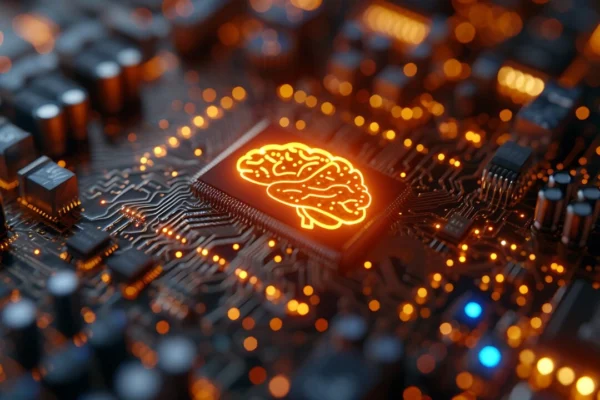
ACC
Feb 5, 2025
Artificial Intelligence (AI) is penetrating into the traditional manufacturing industry at an unprecedented rate, from the production site to the decision-making hub, from product design to supply chain optimisation, its application is gradually reshaping the core competitiveness of the manufacturing industry and operational logic.
From "experience manufacturing" to "intelligent manufacturing"
Traditional manufacturing has long relied on manual experience and process accumulation. Faced with market uncertainty and the rise of customized needs, this model is facing its limits. AI systems (such as computer vision, machine learning, and edge computing) bring an intelligent closed loop of "perception-analysis-reaction" to factories, forming a data-driven iterative mechanism.
Typical scenarios:
Intelligent quality inspection system can identify product defects within milliseconds, with an accuracy rate exceeding traditional manual inspection by more than 30%;
Predictive maintenance system predicts the time point of failure based on equipment status data, reducing equipment downtime by 40%;
Production plan optimization engine realizes scheduling automation based on multi-objective algorithms, effectively improving resource utilization.
Improved supply chain resilience under AI support
The COVID-19 pandemic and geopolitical conflicts have exposed the vulnerability of traditional manufacturing in the supply chain. AI can integrate historical procurement data, real-time market information, and logistics bottleneck data to dynamically model the supply network and achieve accurate prediction and risk response.
Application value:
AI-driven intelligent inventory management system can reduce the backlog rate of raw materials by 25%;
Use natural language processing (NLP) + knowledge graph technology to build a supplier behavior database to improve risk warning capabilities.
Evolution of organizational structure and talent model
The deep integration of AI systems has promoted the transition of manufacturing companies from "operation-based" to "algorithm-driven". Workshop operators and technicians are transforming into "human-machine collaboration" operators. At the same time, the demand for new talents such as AI model engineers, data analysts, and industrial algorithm designers is growing rapidly.
Challenges and coping strategies
Although AI brings great potential, it also faces many challenges in the implementation process, including:
Data silos and equipment heterogeneity make integration difficult;
Small and medium-sized enterprises lack sufficient technical capabilities and investment willingness;
The transparency and explainability of AI systems become trust barriers.
Recommended countermeasures:
Build a hybrid architecture of edge computing + cloud collaboration to achieve flexible deployment;
Develop an industry shared data platform to connect the upstream and downstream ecosystems;
Introduce a "gray box model" to balance explainability and performance.
Reshaping the core of manufacturing is not just about improving efficiency.
Artificial intelligence is not just an upgraded version of automation, but also a driving engine for the reconstruction of the value chain of manufacturing companies. In the future, the competitiveness of manufacturing companies will not only depend on the scale of equipment, but also on the control of data, the application of algorithms and the synergy of organizations.
Aders Consulting Company is collaborating with many leading manufacturing companies to promote the implementation of the "AI+Manufacturing" strategy. Please contact us to obtain the complete white paper content or customized solutions.
